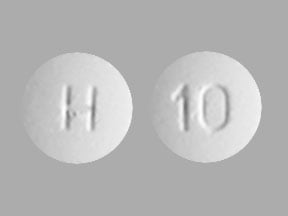
Repaglinide Coupons & Savings Card – Discount Prices from $35.83
My prescription
Edit
0.5MG, Repaglinide (270 Tablets)
Select pharmacy

CVS
$37.42
COUPON PRICE
Albertsons
$35.83
COUPON PRICE
Walgreens
$40.65
COUPON PRICE
Walmart
$47.80
COUPON PRICERepaglinide savings card
Show this card to your pharmacist
Albertsons
$35.83
BIN
ID
PCN
GRP
019876
LHF0083E4B
CHIPPO
LHX
Powered by
Related glinides prescriptions
Related glinides prescriptions
Repaglinide dosage forms
Dosage Quantity Price from Per unit 0.5MG 270 Tablets $35.83 $0.13 0.5MG 90 Tablets $18.10 $0.20 0.5MG 100 Tablets $19.11 $0.19 1MG 1 Tablet $2.63 $2.63 1MG 30 Tablets $6.30 $0.21 1MG 90 Tablets $20.39 $0.23 1MG 100 Tablets $21.66 $0.22 1MG 270 Tablets $37.42 $0.14 1MG 500 Tablets $46.90 $0.09 2MG 90 Tablets $12.35 $0.14
| Dosage | Quantity | Price from | Per unit |
|---|---|---|---|
| 0.5MG | 270 Tablets | $35.83 | $0.13 |
| 0.5MG | 90 Tablets | $18.10 | $0.20 |
| 0.5MG | 100 Tablets | $19.11 | $0.19 |
| 1MG | 1 Tablet | $2.63 | $2.63 |
| 1MG | 30 Tablets | $6.30 | $0.21 |
| 1MG | 90 Tablets | $20.39 | $0.23 |
| 1MG | 100 Tablets | $21.66 | $0.22 |
| 1MG | 270 Tablets | $37.42 | $0.14 |
| 1MG | 500 Tablets | $46.90 | $0.09 |
| 2MG | 90 Tablets | $12.35 | $0.14 |
| 2MG | 100 Tablets | $13.44 | $0.13 |
| 2MG | 270 Tablets | $37.42 | $0.14 |
| 2MG | 500 Tablets | $46.90 | $0.09 |
Repaglinide Warnings
The warnings and precautions outlined below are essential for ensuring the safe and effective use of this medication. Please read them carefully and discuss any concerns with your healthcare provider.
Low Blood Sugar Risk: Use of repaglinide can lead to low blood sugar levels, which may become life-threatening. Symptoms to watch for include dizziness, headache, sleepiness, weakness, trembling, a rapid heartbeat, confusion, or sweating. It's crucial for both you and your close contacts to recognize these signs and understand how to manage them. In an emergency, call 911. Regular monitoring of your blood sugar is advised to prevent dangerous drops. Always carry fast-acting sugar to quickly remedy low blood sugar if needed. Factors that increase risk include alcohol consumption, changes in diet or physical activity, certain medications that lower blood sugar, advanced age, and kidney or liver issues.
Heart Problem Risk: Avoid using repaglinide in combination with NPH-insulin, as this can elevate the risk of heart complications. Inform your healthcare provider if you are on NPH-insulin to prevent potential heart damage.
Contraindications: Do not use this medication if you are also taking gemfibrozil (Lopid), as this combination can lead to serious health issues. Always consult your healthcare provider if you have any conditions or are on other medications that could contraindicate the use of this drug.
By adhering to these precautions, you can help manage the risks associated with this medication effectively.
Repaglinide Side Effects
Common side effects:
- Low blood sugar
- Upper respiratory infection
- Headaches
- Sinus infections
- Joint pain
- Nausea
- Diarrhea
- Back pain
Less common but important to monitor:
- Chest pain
- Constipation
- Vomiting
- Indigestion
- Weight gain
Serious side effects:
- Significant drops in blood sugar
- Serious allergic reaction
Repaglinide Interactions
Interactions with high risk of serious adverse effects and should be avoided:
Interactions with moderate risk that may require dose adjustment, closer monitoring, or timing changes:
- NPH Insulin
- Clopidogrel
- Itraconazole
- Erythromycin
- Rifamycins
- Fluoroquinolone antibiotics (such as ciprofloxacin)
- Azole antifungals
- Macrolide antibiotics
- Prednisone
- Olanzapine
- Metoprolol
- Propranolol
